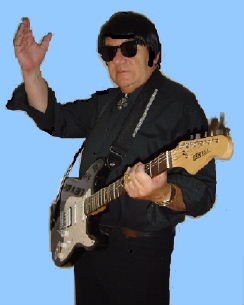
Music control

Hello, I am "Peter the Voice". You can see me and hear me performing, but that is not important,what I want you to see and hear about is the Community First Responders, who they are, what they do and how you can play your role to help them preserve life.My interest stems from the fact that "out of the blue"I suffered a cardiac arrest (that is when the heart stops beating) and luckily received immediate defibrillation.My wish is that everyone gets the chance I had, and the First Responder gives that chance.
What Are First Responders?
Dr Richard Cummins, from Seattle, discovered that if a series of events took place in a set sequence, a heart attack victim has a greater chance of survival. These events are known as the "Chain of Survival". When put into practice by increasing public awareness, training in basic life support and community based defibrillators; these events have improved the pre-hospital survival rate to between 25% and 30%.
Whenever an emergency 999 call is made, an emergency Ambulance is immediately dispatched and a first responder is also directed to the emergency.
First Responders are asked by the Ambulance Communications Centre to attend emergencies in their area. The types of emergencies attended may range from collapse due to medical problems and accidents in the home or public place.
First Responder groups consist of 10 - 15 volunteers from the local community. One member of the group is designated as the 'group coordinator'. All the volunteers live and work in the local area, and with a rota scheme, one member of the volunteer group is available and 'on call', 24 hours a day, 365 days a year. First Responders are volunteer members of the community who are trained to respond to emergency calls through the 999 system in conjunction with the Ambulance Service. Responders provide immediate care to patients in their local areas where distance may delay the prompt arrival of an ambulance. They are trained to deliver Basic Life Support and defibrillation to patients in Cardiac Arrest and appropriate calls including oxygen administration to patients suffering from a range of conditions.
First Responders Can Make A Difference
Even the best ambulance service in the world cannot get to every 999 call within the first few minutes. In fact the Ambulance service gets to most calls very quickly. But it may not be quickly enough - especially in countryside areas or large commercial complexes. There is a period of time between the 999 call being made and the ambulance arriving in which little or no emergency care takes place. This time period has been called the 'therapeutic vacuum'. We know that community based First Responders can fill this vacuum and provide essential simple treatment in those crucial first few minutes before the ambulance arrives.
Who Can Become A Community First Responder?
A Community First Responder should be 18 years of age or over, physically fit enough to be able to achieve a satisfactory standard of proficiency after training.
They should have a sympathetic and caring approach to people. They should be reliable and trust worthy with a mature outlook on life.
Ideally a Community First Responder should be able to drive and hold a clean driving licence.
A key factor is that a first responder must be able to work together with others as part of a community team.First Responder Schemes are an additional valuable resource which enable people to learn the skills necessary to begin life-saving treatment before an ambulance arrives, but do not in any way replace existing emergency ambulance services.
Many more lives will be saved, thanks to community partnerships between St. John Ambulance and a growing number of ambulance service trusts. The scheme aims to support the ambulance services by providing immediate pre-hospital care for casualties.
St. John Ambulance Neighbourhood First Responder units are made up of volunteers who live and work in the local community. They become members of and are trained by St. John Ambulance to attend emergency calls received by the ambulance service and provide care until the ambulance arrives. The aim is not to replace the ambulance service, but ensure that in circumstances such as during cardiac arrest, defibrillation and other time-critical life-saving techniques can occur as soon as possible, maximising the chance of the casualty’s survival.
What Type Of Incidents Do First Responders Attend?
The First Responders are contacted by Ambulance control and asked to attend emergencies in their area. The type of emergencies include unconsciousness, chest pain, stroke or breathing difficulties and can be in the home, in the street or in the work-place. An emergency ambulance is always dispatched to any incident attended by a First Responder.
First Responders are not expected to attend emergencies involving children or those considered unsafe or situations that are known to be violent.
Skills and equipment which First Responders are qualified in:-
- Use of Automated. External. Defibrillator (AED)
- Oxygen Therapy
- Bag-Mask-Valve Resuscitation and Airway Adjuncts
- C.P.R. (Cardio. Pulmonary. Resuscitation.)
- First Aid, Patient Care & Assessment
- Recognition of cause and type of illness/injury
- Scene safety & Incident Management
Types of medical emergencies which First Responders are trained for:-
- Category "A" calls - (serious, life threatening):-
- Cardiac arrest
- Unconscious and collapsed patients
- Chest pains (e.g. heart attacks and acute angina)
- Breathing difficulties (e.g. asthma, acute on-set bronchitis/emphysema)
- Diabetic emergencies (e.g. hypoglycemia)
- Fitting or convulsions (e.g. epilepsy)
- Stroke (CVA)
- Anaphylaxis (allergic reaction)
- Choking patients

Return to Top
